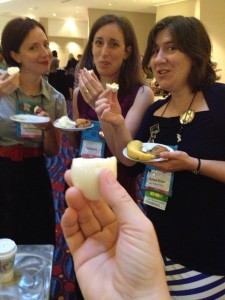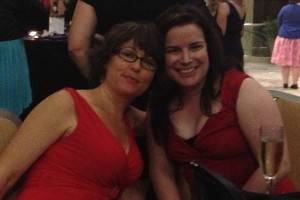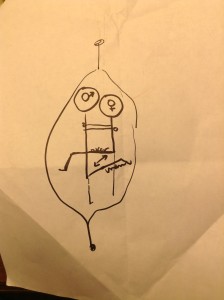In Cecilia Grant’s book A WOMAN ENTANGLED, Kate Westerbrook, of the disgraced branch of the Westerbrook family, is beautiful, has cultivated her beauty, too, like a crop meant to solve the world’s hunger problems.
She understands, keenly, her beauty’s lack of durability, its frustrating transience, how it must be exactly paired with charm and social responsiveness, how much a hair toss, precisely timed, matters.
She worries over her beauty, and her charm, and wit until they are worn stones in her pocket, compulsive touchstones that reassure her that for at least another day, there is hope.
Because, Kate, she is playing a long game, a game that looks backwards and forwards at the same time, a game that forces her to be alone in her sensitivity to a scandal that took place before she was born and predicts difficulties her own children could face if the world refuses to change as it should. She is incredulous that she should be the only one to grieve the loss of her father’s extended family, lost to his own choices and crushing institutional sexism, and she is desperate that she be the one to bear all the potential suffering of this loss, if she is unable to wield her beauty and charm as so much embroidery silk—mending and mending and mending.
Every time she looks at her younger sister, Rose, observes her anxiousness and depression as a victim of bullying at her finishing school, every single time Kate sees it in the smallest change of Rose’s posture, Kate touches her stones and she rallies and she compartmentalizes, a little more, every small part of herself that is herself, that is even a little untidy, or needful, or messy, or grasping, or simply says, inconveniently, I want.
Kate is not, as the copy suggest, at least to me, ambitious, Kate has designated herself and the accident of her beautiful genes as a graft between two generations who she believes need each other to go forward, to secure the happiness of everyone who comes next. She will not accept loss; she will not accept that the grief passed through its time before she was born. She of course, sees the evidences of her broken family in Rose, in the genteel shabbiness of her mother’s home, even in her father’s tenacity that his choice of love above all other considerations was big enough to grow over the losses.
I can’t help it, I resist, my heart in my throat, tight and lodged, Kate’s friends’ and family’s assessment that Kate is a cold pragmatist, and the book’s evocation of Elizabeth Bennett, and Kate’s struggle with Lizzie’s prejudices and the prize of Pemberly’s shining balustrades in spite of them, is a deeply complex literary guardian of Kate’s motivations. One way, Kate’s desire to stupefy a wealthy and titled man into marriage, a man that could only be introduced to her if she is vouched by the Westerbrook matriarch that has cast out her family, is evidence to her inability to feel acceptable desire—the desire for the truly loving marriage her parents share and have suffered the costs for. Another way, Kate’s desire for love is so great she is willing to forgo love to have love visited on every single subsequent Westerbrook that follows her own life. Rose will be free to love, with or without balustrades. Kate’s children. Onward, because yes, she understands love very well.
She tightens this tether around her own needs and wants, buckling them in like a child in a carseat, I can’t help but think, understanding Kate very well, yanking the strap that secures them against anything that might jar them loose.
Like loss. Or love.
There is a way in which, that speaks to the great argument of this book, that I root for Kate to wear down the prejudices of the reigning Westerbrook matriarch and so gain entry into the ballrooms, have her dance card thusly filled by marquess after marquess, and smile in such a way in the right dress and under the right number of candles that the stupefaction of some kindly marquess with 10,000 a year is managed. From such a position, then, she calls the terms of her life, she ascends as the matriarch, pardoning her own father, legitimizing the eccentricities of her siblings as accomplishments, watching her own children marry for any fucking reason they wish.
I almost wish, in fact, that Nick Blackshear would just stop looking at her.
A barrister without his own land holdings and unable to see the way through his own ambitions due to his brother’s scandal, he is an agonizing foil to Kate’s mission. What’s more, they both have come to this understanding. She does not direct her charms to him, he is not in receipt of them, he alone, in fact, will do what he can to assist her in her campaigns to win her father’s sister-in-law, they have all but shaken on it, or at least, stood in close proximity under darkened stairwells steeped in choking sexual tension on it.
What this book accomplishes that Austen couldn’t manage, is love without the ease of the balustrades and loss acknowledged, but not mended. If I rooted alongside Kate, my voice grew hoarse and distant, and then quiet inside the empty room above a ballroom that should have been Kate’s marquessed triumph, and instead was the ache of catharsis as Nick brought her to orgasm, their bodies still entirely clothed, all barriers between them. After this, Kate wants and needs for herself, and in fact, all she has are her needs, and her wants, even her gown is borrowed.
Nick’s arc is an echo, in way, of Kate’s father’s. Nick’s brother married himself and the Blackshears out of proper society by falling for an unacceptable woman. Like Kate’s father, Will accepts the consequences in the face of the gains of love and the chinks in the monolith of sexism. Kate’s father’s brother, despite his love for Kate’s father, never stepped over the rift, and so the grief of this riff was visited again and again and felt keenly by Kate. Nick makes a different choice, but we have absolutely no reassurance that choices made for the benefit of the human heart, and not society, will be enough. Much is said, in this book, of the hope of the world changing. Maybe, maybe, it is choices like Nick’s like Kate’s, when she lets herself love him, that change the world.
The triumph of this book is that Nick and Kate do not know, and yet, choose love anyway.
Elizabeth Bennett did not have to make this choice; she made love behind the gleaming balustrades.
Nick and Kate have only the other’s hands, to hold under their table.
***Giveaway*** Three commenters, who comment by Tuesday, July 30th, 2013 at 8:00 a.m. EST, at which time the giveaway will be closed, will be chosen at random to receive digital copies of Cecilia Grant’s A WOMAN ENTANGLED. Void where prohibited.

























